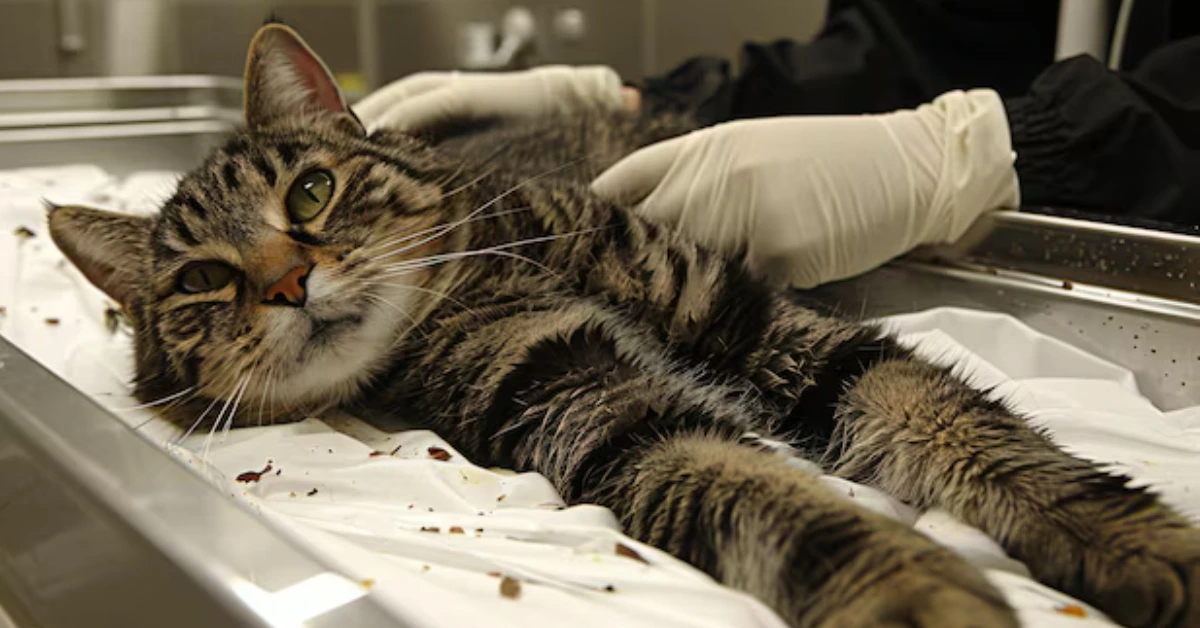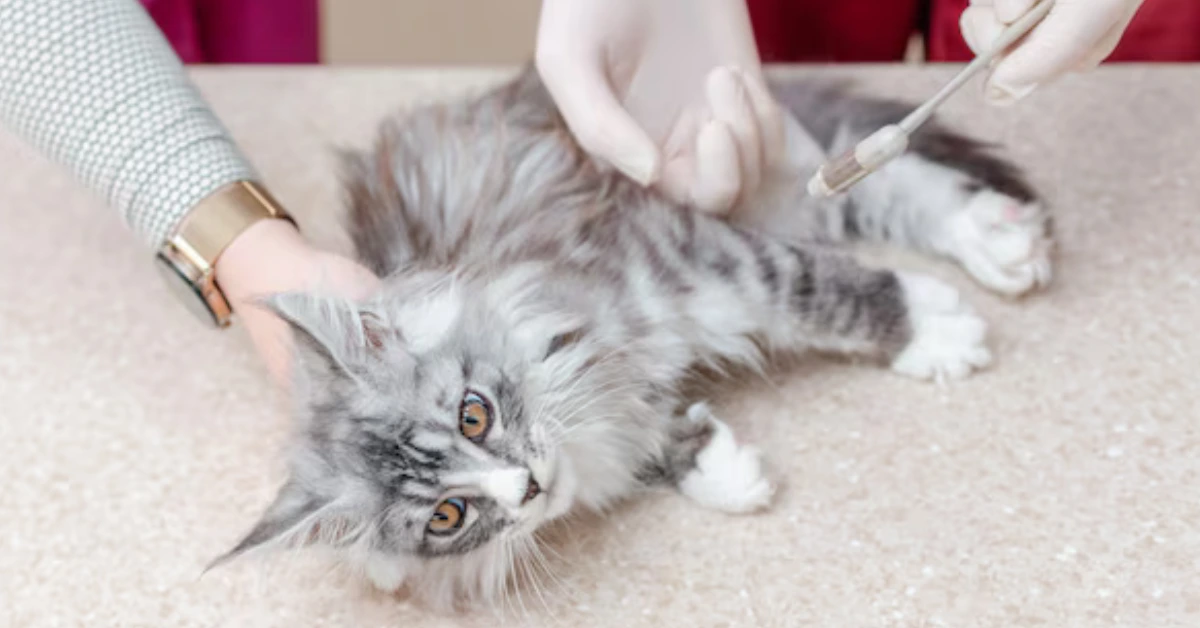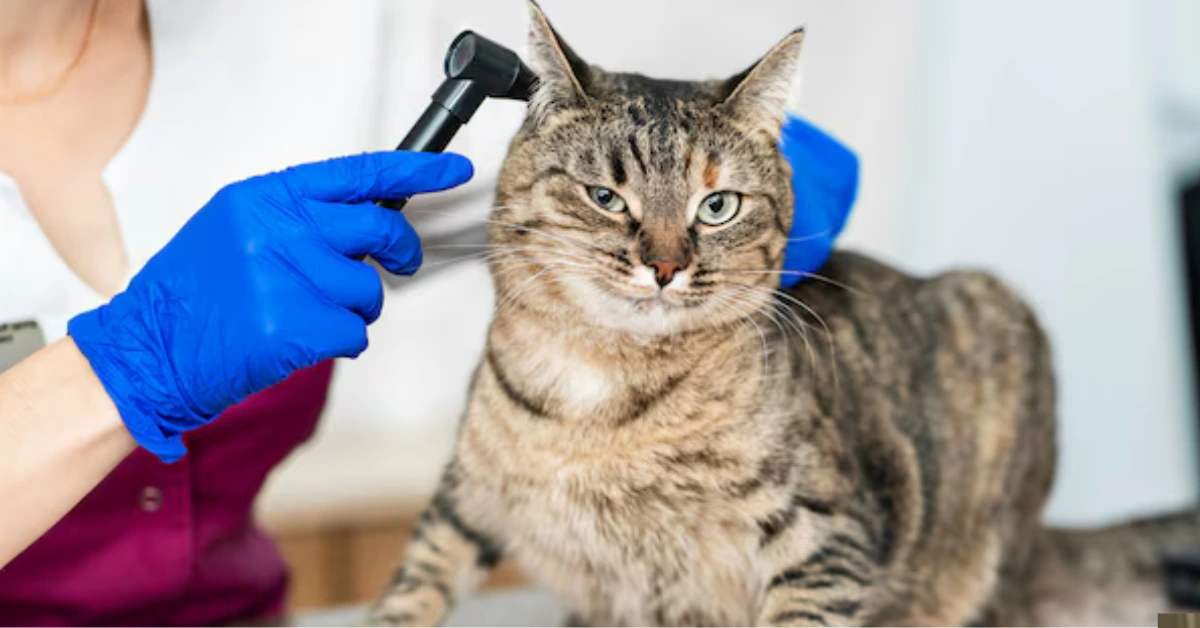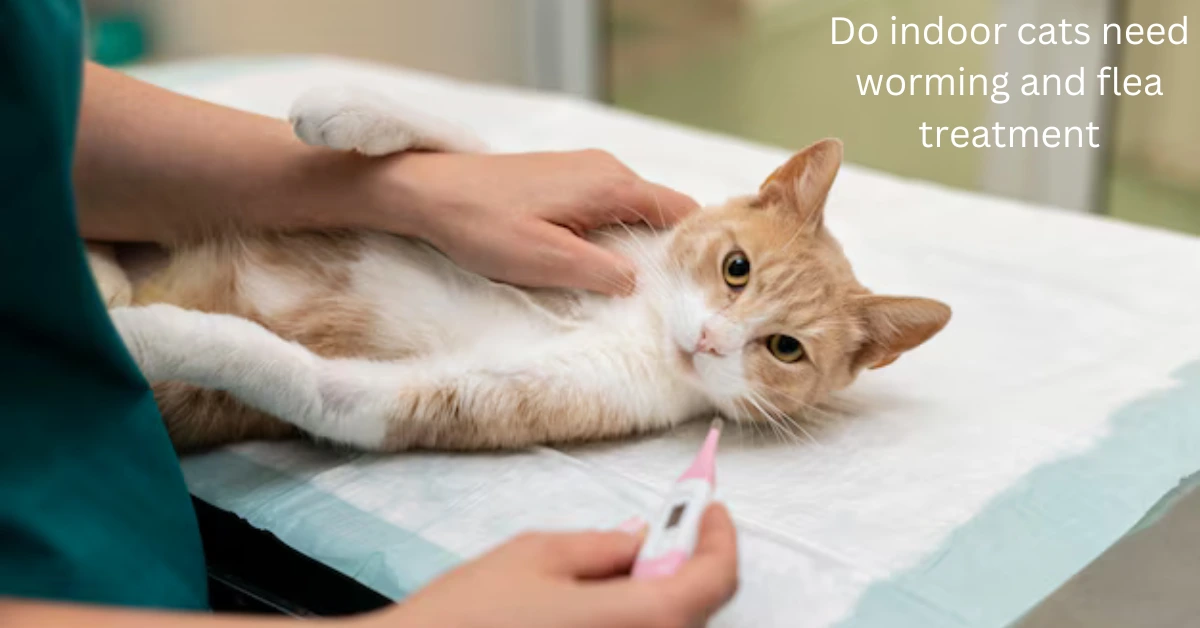Do indoor cats need worming and flea treatment?: Even though your feline friend may stay indoors, there is still a risk of them contracting parasites throughout the year, as these pests are ever-present in the environment. Fleas, ticks, and worms can enter your home through various means, even from something as simple as shoes or blankets, so it’s important to regularly provide your cat with tick, flea, and worm treatment. Doing this helps to protect both your pet and yourselves from the dangers of an infestation. Indoor cats are not completely safe from parasites, so keeping up with these treatments ensures a healthy living space for everyone.
Do indoor cats need worming and flea treatment
Many people think that indoor cats are safe from problems like parasites, but this isn’t always true. Even if your cat never goes outside, they can still get fleas or worms. Yesterday’s live Q&A on Facebook with Cats.Do Indoor Cats Need Worming and Flea Treatment? Protection vet Vanessa Howie talked about this exact issue. She was answering questions about how fleas and worms can affect indoor cats, just as much as outdoor cats. A selection of answers from that session showed that these parasites can find their way inside through things like other pets, people’s clothing, or even open windows.

Flea and Worm Treatment for Indoor Cats
If you’re wondering whether you should treat your indoor cat for fleas and worms, the answer is yes. Fleas can jump onto your cat from other animals or even furniture, while worms can be picked up from household dust or other surfaces. According to Vanessa Howie, it’s important to take action even if your cat doesn’t go outside. Regular treatment helps keep your cat safe from infestations, preventing long-term health problems and ensuring a comfortable life for your pet.
Flea Treatment for Cats
Many people assume Indoor Cats Need Worming and Flea Treatment? that indoor cats are safe from parasites, but that’s not entirely true. Even though indoor cats don’t roam like their outdoor counterparts, they can still encounter fleas and worms. The reality is that even indoor cats need regular worming and flea treatment to stay healthy. Parasites can enter your home on shoes, clothes, or even through open windows, making it important to keep your cat protected.
- Schedule regular flea and worm treatment for your beloved indoor cats.
- Check for signs of parasites like scratching or weight loss, as these may indicate an infestation.
- Keep your home clean by vacuuming regularly to minimize any fleas brought in.
- In the United Kingdom, many vets offer convenient solutions for maintaining optimal health, ensuring your cat remains parasite-free.
- Be proactive to help your cat avoid health issues and stay happy inside your home.

Fleas in Cats
Even if your indoor cats stay inside, they can still get infested with parasites like fleas. Fleas are small, dark brown insects that are found year-round in the United Kingdom. They are the most prevalent skin parasite for cats, and can easily enter your home. Contact with other animals or just bringing in fleas from the environment can be enough to cause a problem. Central heating and fitted carpets create a warm, humid condition that helps fleas to flourish indoors.
Fleas in Indoor Cats
Fleas feed on blood and then lay up to 50 eggs a day, which fall wherever your cat goes. These eggs then hatch into larvae that hide in dark recesses of your home, eventually spinning a cocoon. This cocoon can stay present for two years, waiting for the right signals to hatch into an adult flea, starting the cycle all over again. It’s important to understand that even indoor cats are at risk, so regular flea treatment is essential to keep your pet healthy and your home parasite-free.
Worms in cats: tapeworm and roundworm
The idea of worms in your beloved cat can feel unpleasant, but even indoor cats are at risk. Understanding the right prevention methods and options for keeping them safe is a vital part of being a responsible pet owner. Regular worming is necessary for your cat’s health, as it helps protect them from common parasites like tapeworm and roundworm. These worms can still affect indoor cats, so it’s important to be proactive.
Steps to Prevent Tapeworm and Roundworm in Cats
- Understand the risks of worms for both indoor and outdoor cats.
- Choose prevention options recommended by your vet for both tapeworm and roundworm.
- Schedule regular worming treatments as part of your cat’s care routine.
- Keep your home clean to reduce the chance of flea infestations, which can lead to worms.
- Stay informed about new prevention methods to ensure you’re doing everything to keep your pet healthy and safe.
Parasite prevention for indoor cats: Do they need flea and worm treatment?
Many people believe that indoor cats do not need parasite prevention. However, the reality is different. Even though your cat stays inside, they can still be at risk of parasites, including fleas and worms. Parasites like fleas can enter your home through open windows, on your clothes, or from other pets. Worms can also be passed through contact with infected surfaces or even other animals.
That’s why it’s important to know that parasite prevention for indoor cats is still necessary.In my experience, I’ve seen owners assume that their cat is safe from parasites just because they never go outside. But the risk of parasites is there, even for indoor cats. Flea eggs can stick to your shoes, and worms can hide in prey or be passed through fleas. So, when you think about it, flea and worm treatment is just as important for an indoor cat as it is for an outdoor one. Parasite prevention helps keep your cat healthy and your home free from unwanted guests
What’s the best way to deal with ticks?
Many think that indoor cats don’t need worming or flea treatment, but that’s not true. Even though they stay inside, they can still be at risk of parasites like fleas and worms. These parasites can enter your home in different ways, such as through windows or on clothing. Worms can even come from other pets or infected surfaces. This makes parasite prevention for indoor cats important, keeping them safe from unwanted problems.
What’s the Best Way to Deal with Ticks?
To deal with ticks on your cat, there are several products available in the market that you can buy. I suggest you talk to your vet for the most effective and safe option. You could also use a tick hook, which helps to remove the ticks you find on your cat. If you’re not sure how to do it, ask your vet for a demonstration. Make sure all of the tick’s mouthparts are fully removed to prevent problems. You can check a guide on fleas and parasites for more information.

Is there a flea treatment I can get in tablet form?
Even though your cat stays indoors, they can still get worms and fleas, so worming and flea treatment is important. Here’s how to protect your cat from parasites:
- Understand the Risk: Fleas can enter your home on clothing or other pets, and worms can come from infected surfaces. Even indoor cats are at risk.
- Use Parasite Prevention: Regular flea treatment and worming are essential to keep your cat healthy. I’ve seen how parasite prevention helps indoor cats stay safe.
Can I Get Flea Treatment in Tablet Form?
Yes, flea treatments come in tablet form, which can be helpful if your cat doesn’t like skin applications. Here’s how to handle it:
- Consider Tablet Options: If your cat is feral or dislikes contact, a tablet is a great option since it doesn’t require applying it to the skin.
- Use When Contact Isn’t Possible: For cats that need a different method or when contact application isn’t an option, tablets work well. In my experience, they make treating even difficult cats easier.
Our most recent rescue cat has scabby skin by his tail
Even if your cat stays indoors, they can still get fleas and worms, so regular treatment is important. Fleas can enter your home through clothing or other animals, putting even indoor cats at risk. I’ve found that worming and flea treatment are essential to keep them healthy. Parasite prevention protects indoor cats from unwanted health issues, making it a crucial part of their care.If your cat has scabby skin near the tail, it could be a sign of flea allergy. From my experience, cats with flea allergies can have reactions even from a single flea bite. This happens because they are allergic to flea saliva. I would recommend having your vet check the skin to rule out other causes, as there are different types of skin allergies. You might also want to read a leaflet on itchy cats and skin disorders for more helpful tips.
Understanding the Risks for Indoor Cats
Misconception because indoor cats can still face risks. Even with limited exposure to the outside world, they can get fleas and worms. It’s important to understand that indoor cats are still susceptible to certain health issues, just like outdoor cats. Regular worming and flea treatment are needed to keep them healthy and safe from these hidden dangers.
Understanding the Risks for Indoor Cats
Indoor cats might not roam outside, but that doesn’t mean they can’t face risks. Fleas can enter your home through clothing or other pets, and even a single flea can cause problems. In my experience, many people are unaware of how easily these parasites can find their way indoors. This is why it’s essential to have a plan for parasite prevention to keep your indoor cat protected and healthy.
The Importance of Preventive Treatment
Taking care of the health and well-being of indoor cats is very important. Preventive treatment plays a crucial role in keeping them safe from harm. Some people may argue that indoor cats are less likely to be exposed to parasites like worms and fleas. However, it’s important to remember that these pesky invaders can still find their way into our homes, even if our cats stay inside most of the time.By giving your indoor cat regular preventive treatment, you help ensure they have an optimal condition and stay healthy. Keeping up with these treatments helps protect them from health problems caused by parasites. It is better to be safe and protect your furry friend from any risks that come with living indoors.
The Benefits of Preventive Treatment
Implementing preventive treatment for indoor cats is very important. Here are some steps to follow:
- Regularly worming your cat is essential. This helps protect them from harmful worms that can cause health problems.
- Provide flea treatment consistently to give protection against those bothersome parasites. This ensures they don’t have to deal with itching and discomfort.
- Remember that even though cats stay indoors, they can still face risks from parasites. Taking these steps helps keep them in optimal condition.
By following these steps, we can help our cats live longer, healthier lives. Proper treatment not only protects them but also prevents potential health issues, giving us peace of mind that we are keeping our pets safe and happy.
Understanding Worms in Indoor Cats
Indoor cats might seem safe from worms because they stay inside, but they can still get exposed to these common health issues. Worms can enter our homes through various external factors, like other pets or even on our shoes. It’s important to have a good understanding of the different types of worms that can affect indoor cats. These worms can be a risk to their overall well-being, even if they don’t go outside like their outdoor counterparts.
Taking preventive measures is essential to keep your indoor cat healthy. Regular check-ups with the vet can help ensure they are immune to these threats. By knowing what to look for and being aware of potential risks, you can help protect your indoor cat from these issues and keep them happy and healthy.
The Risks of Fleas for Indoor Cats
Many pet owners think their indoor cats are safe from flea infestations. However, it’s important to understand that indoor cats can still be at risk. Fleas can easily find their way into your home. They may be brought indoors by humans, other pets, or even through open doors and windows. This means that indoor cats are not completely free from these pesky parasites.
Once fleas get into your home, they can cause several problems. They can lead to itchy skin and allergic reactions, which are uncomfortable for your cat. Moreover, fleas can reproduce quickly, turning a small infestation into a larger problem. It’s essential for pet owners to recognize that even indoor cats should receive regular flea treatment to keep them healthy and happy.
The Importance of Regular Flea Checks
Regular flea checks are vital for every cat owner, even if their cat mostly stays indoors.It’s important to keep an eye out for signs of flea activity. Look for:
- Excessive scratching
- Hair loss
- Tiny black specks that look like dirt on your cat’s fur
- If you see any of these signs, suspect a flea infestation.
- Always consult your veterinarian immediately for the right diagnosis and treatment options to keep your indoor cat happy and healthy.
- Keeping your cat flea-free not only protects its health but also makes for a happier home.
- Regular flea checks can help catch issues before they get worse.
- Even indoor cats can get fleas, so being proactive is key.
- Noticing flea activity early can save you time and stress later.
- When you check your cat regularly, you’re taking an important step to ensure its overall well-being.
- Remember, a happy cat makes for a happy owner!
Consultation with a Veterinarian
When it comes to the well-being of your indoor cat, having a consultation with a veterinarian is very important. A vet has the expertise and knowledge to help you figure out the specific needs of your feline companion. They can guide you on the best worming and flea treatment options. Even though your cat may live indoors, they can still face risks from worms and fleas that find their way inside. Regular visits to the vet can help keep your cat safe and healthy.It’s not just about getting rid of pests; a vet can help you understand how to prevent them in the future. Your cat might show signs of needing help, like scratching more than usual or losing hair. If you notice anything odd, make sure to talk to your vet right away. This will help ensure your cat stays happy and healthy at home.
Safe and Effective Treatment Options
Even though indoor cats are mostly safe, they can still face risks from worms and fleas. Fortunately, there are many effective and safe treatment options available to help keep your feline companions protected. Regular treatments can prevent these pesky pests from causing health problems. Always talk to your veterinarian to find the best treatment for your cat’s needs. They can guide you on the right options that are suitable for your indoor cat, ensuring their overall health and well-being.
By keeping up with these treatments, you can help your indoor cat stay immune to the dangers posed by worms and fleas. It’s important to be aware of these risks and take the necessary steps to protect your pet. With the right care, you can ensure that your indoor cat remains healthy and happy in their safe environment.
Implementing a Regular Treatment Routine
Indoor cats need a regular treatment routine to stay healthy and safe. Here’s how to implement it effectively:
- Understand the Importance: and fleas. This routine is crucial for their overall health and well-Recognize that even though indoor cats are not exposed to the same risks as outdoor cats, they still need protection from worms being.
- Consult Your Veterinarian: Seek guidance from your vet about the best treatment options. They can help you establish a tailored plan based on your cat’s needs.
- Set a Routine: Create a consistent schedule for checking for pests and administering treatments. This includes regular flea checks and worming as needed to proactively address any potential health issues.
- Monitor Your Cat: Keep an eye out for any signs of infestations or health problems. Early detection can help prevent serious issues.
- Adjust as Needed: Be flexible with your routine. If your cat shows signs of problems, consult your vet to adjust the treatment plan.
By following these steps, you can ensure that your indoor cat remains protected and healthy.
Conclusion
Indoor cats enjoy the cosiness of home, but they can still face health risks. Just because they are indoors doesn’t mean they don’t need worming or flea treatment. These cats can be exposed to fleas and worms from other pets or humans. Regular checks and a safe, effective routine are essential to protect your feline companions.
It’s important to consult a veterinarian for guidance on your cat’s specific needs. They can help create a regular treatment plan. This keeps your cat healthy and happy while preventing potential health issues.






